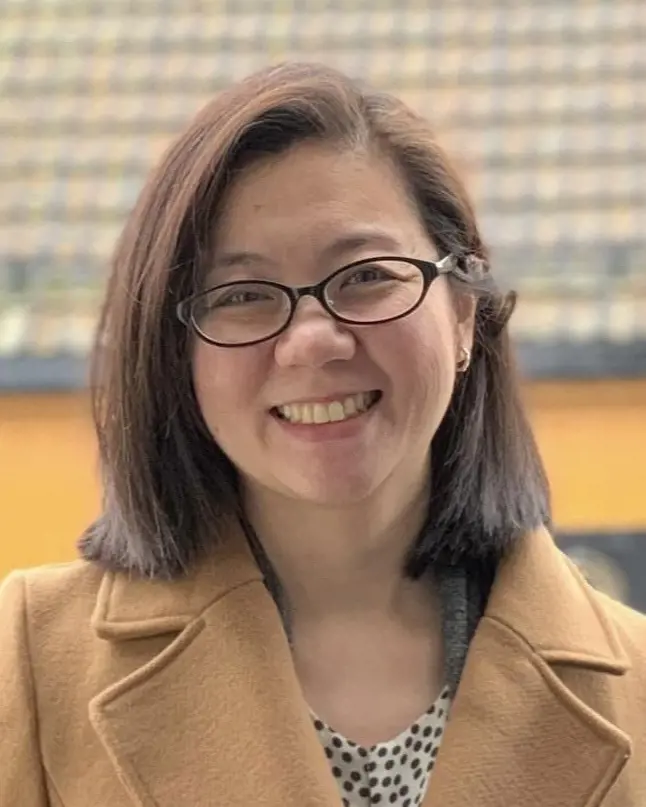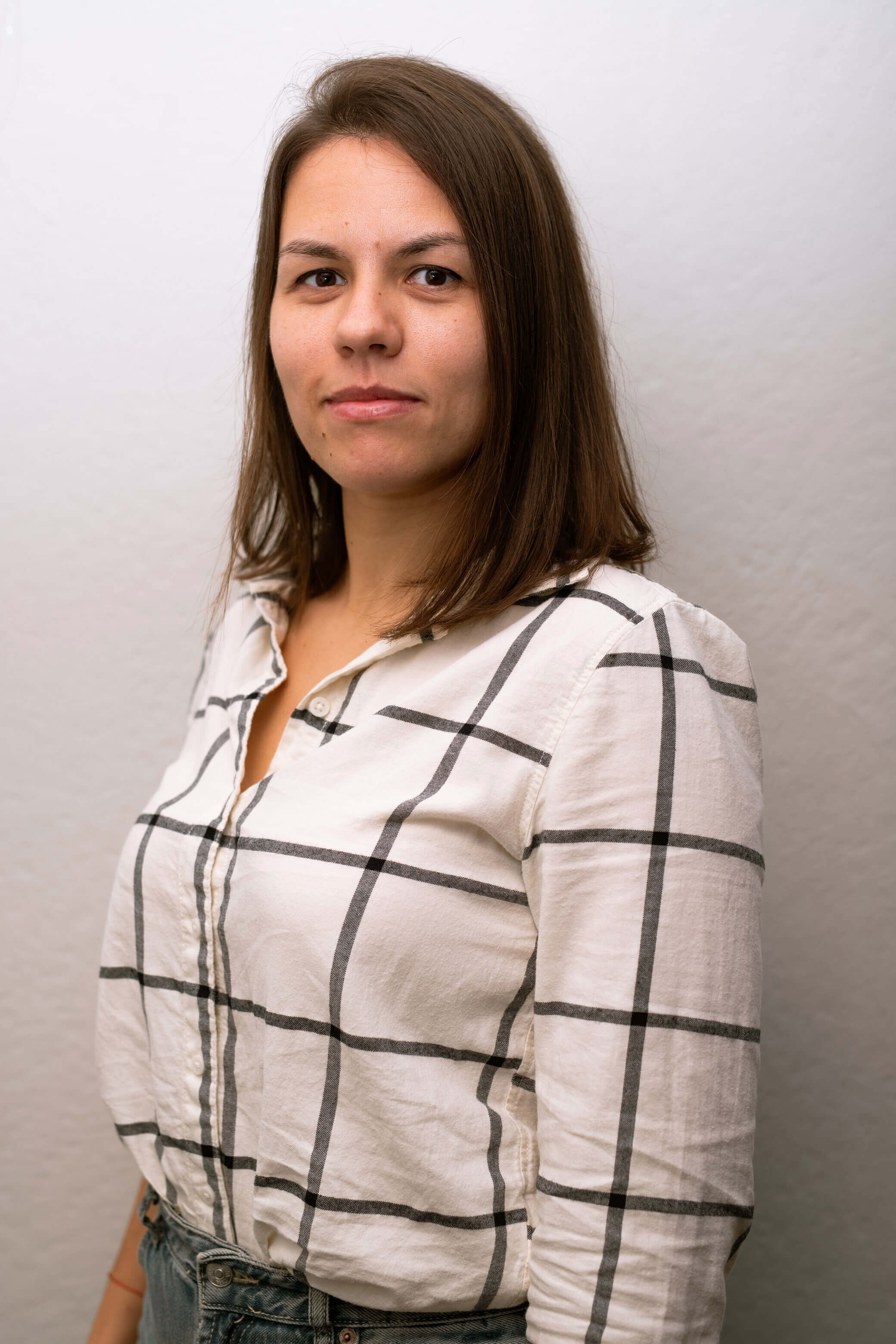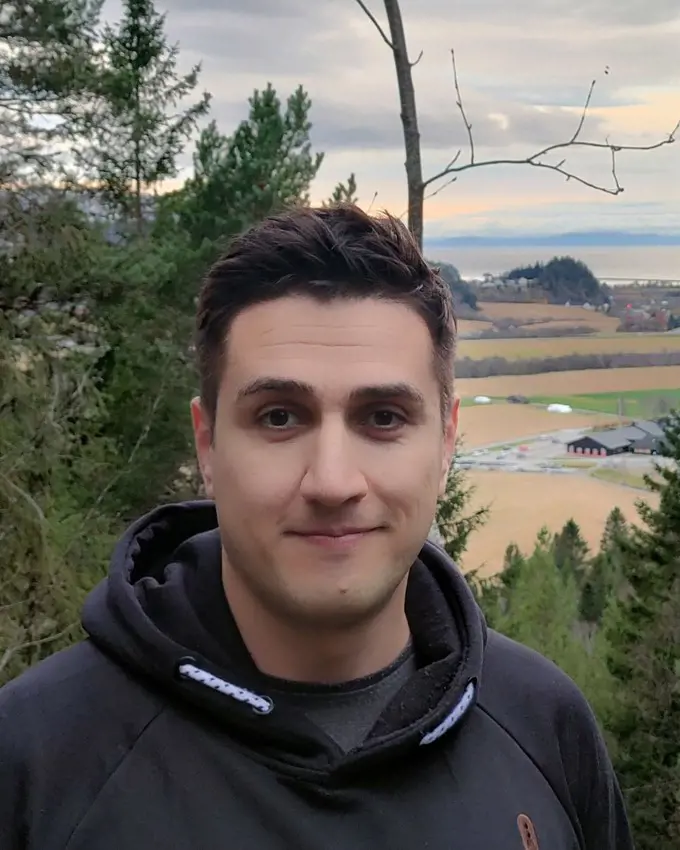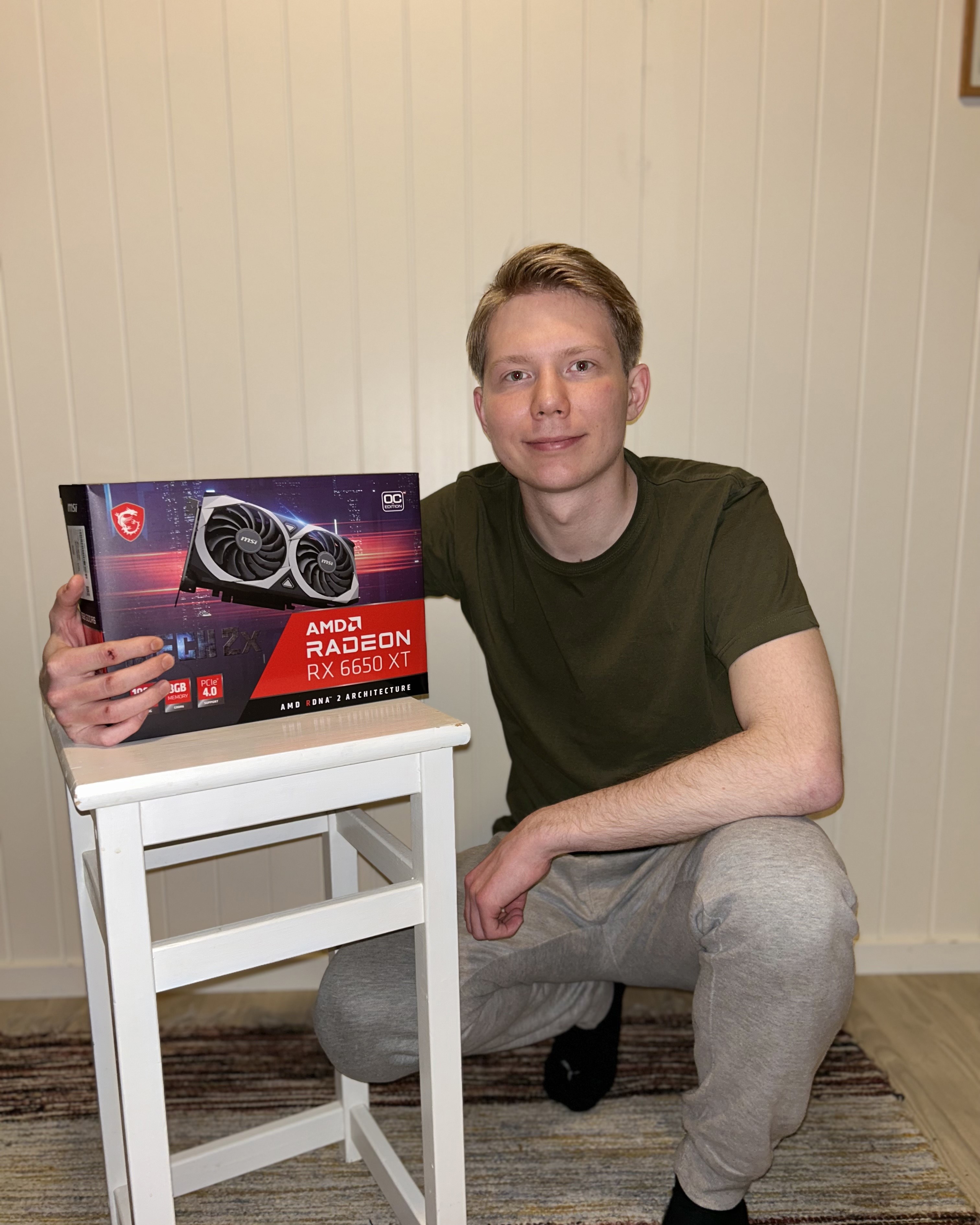Team members on integration, learning and coding
Four employees at Omega 365 Solutions in Stjørdal, Norway share their experiences of adapting to life in Norway. Whether through self-taught skills or formal initiatives like the Lifehack program, their experiences showcase the varied challenges and triumphs of starting afresh in a new country.
Published: 04. January 2024Larissa Cruz
Larissa Cruz is originally from the Philippines and is now working as a System Engineer at the Omega 365 Solutions office in Stjørdal.

How did you first hear about the Lifehack programming course, and what motivated you to join?
I had recently moved to Norway and was studying Norwegian when I learned about the Lifehack programming course. As an IT professional from the Philippines, I thought it was the perfect opportunity for me, especially since I was also actively seeking opportunities in the IT field.
Can you share some of your experiences during the six-month programming course? What did you find most valuable about the training?
The Lifehack programming course was very well organized. Despite being only a 2-day-a-week course, it provided me with the tools necessary to learn both front-end and back-end programming. I spent most of my spare time learning how to program.
How has participating in the programming course helped you in your journey as a refugee or immigrant in Norway?
Being an immigrant is challenging, but the Lifehack program helped me learn a new skill and secure a job. Now, I also have the opportunity to improve my Norwegian language skills at work.
What advice would you give to others who are considering enrolling in similar programming courses to help them integrate into their new community?
Stay focused on your goals. Work hard and everything is possible!
Olga Horbunova
Olga Horbunova is from Ukraine and works as a System Developer at Omega 365 Solutions in Stjørdal.

How did you first hear about the Lifehack programming course, and what motivated you to join?
The first time I heard about the Lifehack course was when I was studying at the Voksenoplæring center. We were in a Norwegian language lesson, and an administrator from the center came and announced that Omega 365 was going to conduct a programming course. I was extremely excited and signed up for it. My motivation was to learn something new, try to pursue a well-paid profession (as we all know, programming offers well-paid opportunities), and to take my mind off negative thoughts about the war in my country. As of now, I can confidently say that all of my goals have been achieved.
Can you share some of your experiences during the six-month programming course? What did you find most valuable about the training?
First, you should learn how to study by yourself. Self-education is a crucial aspect of a programmer's life. There are no existing courses on this planet that will provide you with all the information and skills you need.
Secondly, it's okay not to know everything and to sometimes feel stupid. Everyone experiences this feeling from time to time, even the most experienced specialists. It's normal and should not stop you from achieving your goals.
One of the most valuable aspects of training is that you get to meet people of different nationalities who are also eager to learn programming. This is a huge experience, and it helps you develop the skills needed for self-study, which has helped me a lot.
How has participating in the programming course helped you in your journey as a refugee or immigrant in Norway?
Did you know that there are five stages of adaptation in a new country? Tourism, frustration, adjustment, assimilation, and biculturalism. So, the Lifehack project started around October 25, 2022, when I transitioned from the tourism stage (where you are excited about the new country and its features) to the frustration stage (where the initial euphoria fades, and you face the reality, feeling shy and confused due to language barriers and a lack of understanding about how things work in the new country, and experiencing homesickness and loneliness).
During this time, the Lifehack project helped me navigate through the challenging phase of homesickness and doubt about whether things would ever work out in this new country. I committed to studying every day, faced various challenges, and encountered both successes and failures. All of these experiences helped me divert my focus from the bad news and my own feelings about the situation.
Then came the adjustment stage, and I secured a practice position at Omega. This was a huge motivational step and gave me the realization that I could achieve something meaningful in this country. It gave me some self-confidence and provided an opportunity to plan my future, which was especially important for me at that time.
Now, when I have a full time job, I feel myself included in the community, and I'm incredibly grateful for that to our Department Manager. Throughout my time at Omega, I never felt like I wasn't part of the team or the society, and I was never treated differently from other workers. It is very precious and also helped a lot to feel better in a new country.
What advice would you give to others who are considering enrolling in similar programming courses to help them integrate into their new community?
My first piece of advice is to study hard. No one can do it for you. The best practice is simply to write code. Everything else will follow.
Secondly, have faith in yourself. Sometimes it's tough, especially when the code isn't working, and you can't understand why. You may spend a lot of time on it, and when you're just starting to learn programming, you might think that the problem is you, and that you are the most dumb person ever. But dealing with code that isn't working is part of the daily life of every system developer. Spending time on the code that is not working – it is a routine.
Lastly, my third piece of advice is: don't overthink it, just enroll. It's a unique opportunity that doesn't come along often. Seize your chance; it may not be a second chance.
Kamil Salmanov
Kamil Salmanov is from Ukraine and works as a System Developer at Omega 365 Solutions in Stjørdal.

How did you first hear about the Lifehack programming course, and what motivated you to join?
I first learned about the Lifehack programming courses at a language school. In Ukraine, I worked as a programmer and had always enjoyed programming. After my language classes, I often found myself coding at home. The opportunity to program immediately after school, especially alongside experienced developers, was a delightful surprise for me. I was particularly intrigued by the new technologies I could learn.
Can you share some of your experiences during the six-month programming course? What did you find most valuable about the training?
I think the most valuable aspects of the course were the feedback from the instructors and the practical assignments we were given to complete at home. These elements provided a hands-on learning experience that was both challenging and rewarding.
How has participating in the programming course helped you in your journey as a refugee or immigrant in Norway?
This course was life-changing for me. It allowed me to focus solely on programming and learning the Norwegian language, which were crucial for my integration and personal development in Norway.
What advice would you give to others who are considering enrolling in similar programming courses to help them integrate into their new community?
I would advise future students to engage more in coding at home. The courses provide direction, but the foundation lies in actively writing code. Start with small programs and gradually expand them. And, of course, it's important to have a passion for what you're doing.
Maksym Kushnir
Maksym Kushnir is from Ukraine and works as a System Engineer at Omega 365 Solutions in Stjørdal.

How did you first hear about Omega 365, and what motivated you to apply?
I heard about Omega from a NAV employee. He said that there's an IT company in Stjørdal, and they asked if I would like to try their course. I saw this as an interesting opportunity to improve my skills in development and communications.
Can you share some of your experiences so far in Omega? What did you find most valuable when you first started?
Since joining Omega 365, I have had the privilege of being part of a dynamic and collaborative team.
The most valuable aspect has been interacting with the people I work with. It's challenging to move to a new country, especially when you've never been on your own and didn't use English in your daily life.
My job has become more than just work; it has also helped me improve my language skills and develop strong social circles.
How has your time in Omega 365 helped you in your journey as a refugee or immigrant in Norway?
Omega has given me the opportunity to pursue what I truly enjoy and has instilled a sense of confidence in my future, especially in the near term. Before joining Omega, I used to attend a language school to study Norwegian, and then I would work an additional 5-8 hours. It was a challenging yet interesting experience, and I am glad that I made the decision to leave that behind.
What advice would you offer to others who are considering pursuing programming skills or a career in technology, especially if they are newcomers to a country?
I don't know much about the job market in Norway, especially in the current landscape where AI is advancing rapidly. However, I believe that for newcomers in the IT field, it is crucial to become acquainted with AI technologies. Using tools like Copilot and ChatGPT can be an excellent choice for skill development.
Higher education holds great importance in Norway, as reflected in every software developer job posting. Therefore, it would be good to search for a university in your country that offers remote learning options. Another option for Ukrainians is to self-fund their exams and other university-related expenses.